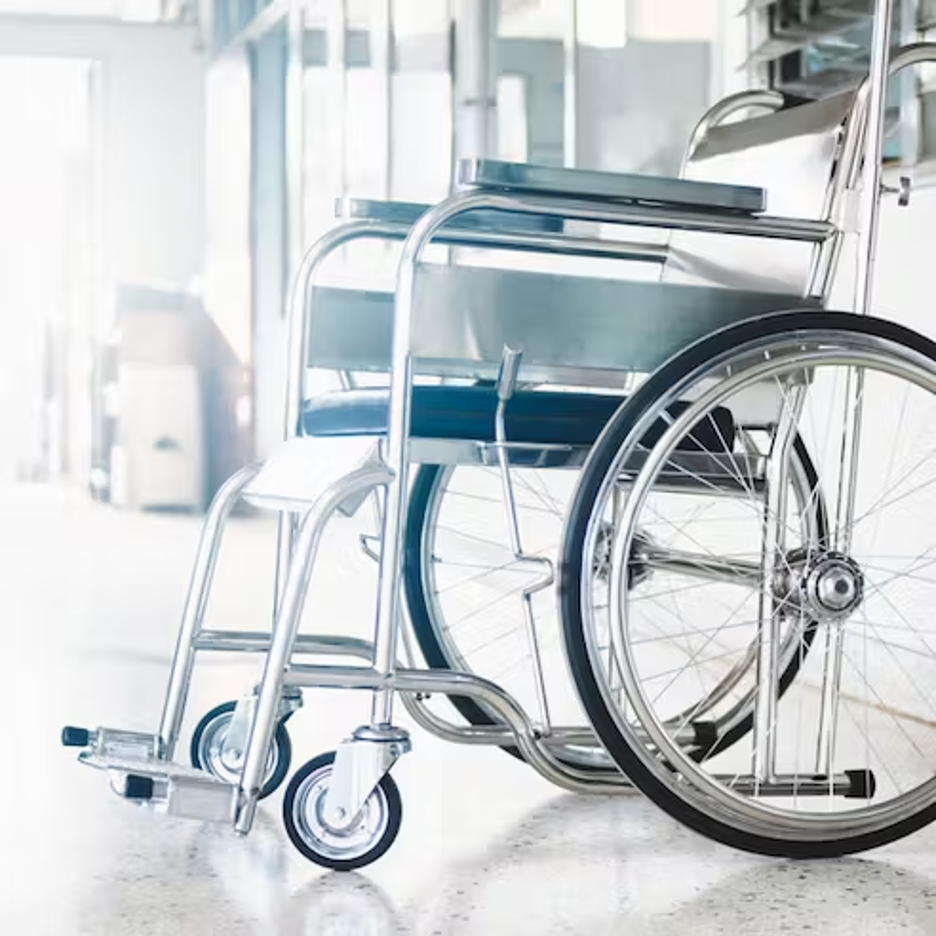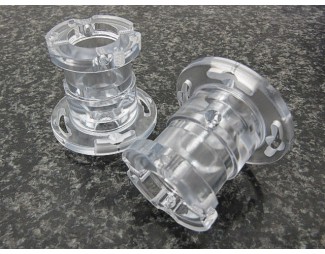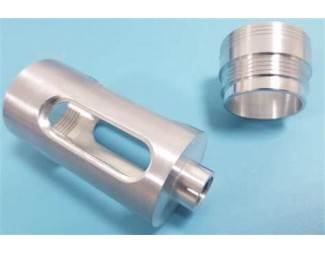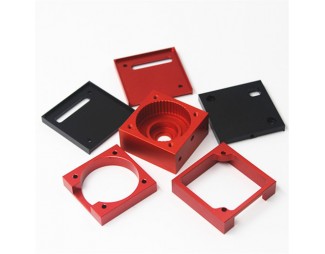Common Material for Medical CNC Machining
Generally, precision medical components must be designed with biocompatibility and tolerance requirements in mind. Therefore, choosing the most suitable materials that meet quality, functional, and safety requirements is essential.

Here are some of the common materials for medical device machining:
Metals for Medical CNC Machining
Aluminum
Aluminum is a favored material in the medical field due to its lightweight nature, exceptional strength-to-weight ratio, resistance to corrosion, and durability. It is also biocompatible and suitable for limited internal use within the human body. Notable aluminum alloys commonly used in these applications encompass 6061, 6063, and 3003.
They find wide applications in producing surgical and dental instruments like scalpels, scalers, and clamps. They are also used in various hospital equipment such as trays, rolling carts, IV stands, orthopedic supports, etc.
Stainless Steel
This metal offers strength, toughness, impact resistance, corrosion resistance, and biocompatibility. Moreover, it is stable to heat and has an outermost passivation layer that enables easy cleaning and sanitization. Stainless steel finds extensive applications in constructing items like artificial heart valves, orthopedics, prostheses, forceps, bed frames, wheelchairs, catheters, syringes, etc. Some commonly used stainless steel grades in the medical field are 304, 304L, and 316L.

Titanium and Titanium Alloys
Titanium and its various alloys have a remarkable combination of strength, low weight, and exceptional corrosion resistance. Titanium is among the few metals that remain inert and unaffected by bodily fluids and tissue.
The medical industry widely utilizes titanium and its alloys to produce critical devices such as joint replacements, pacemakers, bone plates, and other surgical and dental tools. Key titanium alloys used in medical applications include Grade 5 (Ti 6Al4V) and Grade 23 (Ti 6AL4V ELI).
Copper
Manufacturers opt for this metal due to its impressive antibacterial and antiviral properties. As a result, it is a suitable choice for surfaces that are frequently touched. These include buttons and monitor switches on electronic medical devices. In some situations, some designers include copper in dental implants.
Brass
Brass is also gaining prominence in the medical field because of its antimicrobial qualities. It is also relatively cheap, recyclable, and has sufficient strength. Since it contains a good amount of copper, its inherent antimicrobial properties help curb the growth of bacteria and pathogens. Brass finds application in pressure regulators, valves, electronics, and touch surfaces.
Plastics
Delrin
Delrin is a thermoplastic material renowned for its high strength, rigidity, and dimensional stability. Notably, its low coefficient of friction and chemical resistance renders it ideal for medical CNC machining. Its applications encompass orthopedic implants, scalpels, forceps, inhalers, and other components of simple medical equipment.
Polycarbonate (PC)
It distinguishes itself in CNC medical machining due to its high strength, optical clarity, and impact resistance. PC helps in creating the tubing and connectors for medical devices. It is also useful for protective goggles & shields, respiratory masks, equipment housings, and surgical instrument handles.
PEEK
This engineering thermoplastic is known for its remarkable strength and exceptional chemical resistance. As such, it is suitable for medical parts exposed to harsh substances. Manufacturers use it for temporary contact products, surgical clamps, ventilator tubes, X-ray machines, prosthetics, and more.
Acrylic
This plastic is prized for its impact resistance and optical clarity. It finds extensive use in crafting machined medical device parts like contact lenses, dental prosthetics, orthopedic implants, lasers, micro equipment, and protective shields.
PTFE
Also called Teflon, PTFE is a medical-grade thermoplastic lauded for its high heat resistance and dimensional stability. It is a reliable choice for applications necessitating repeated steam sterilization and devices requiring precision and reliability. Its applications include catheters, prosthetics, implantable devices, wound dressings, and more.
Polypropylene (PP)
This metal stands out for its chemical resistance, making it valuable for devices subjected to frequent sterilization. It also offers good dimensional stability, making it suitable for crafting precise components, including pipettes, test tubes, inhalers, nebulizers, syringes, and medical packaging.
Nylon
Nylon’s exceptional attributes include flexibility, high tensile strength, corrosion resistance, abrasion resistance, and chemical resilience. Thus, it is a prime material in the medical sector. This versatile material finds application in crafting various medical products, including stent delivery systems and prescription bottles.
If you have any prototyping project please feel free to contact: enquiry@abcrapid.com.
Search
Recent Post













